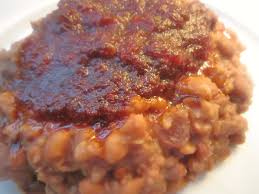Specialization or Complementation? Still on the Ewa Agoyin Debate

Last week, our SME expert and columnist, David Apaflo, did an article on how complementary goods can boost or jaundice sales for a product/service, using example of his experience with a roadside ewa agoyin seller in Lagos.
The piece was posted on Nairaland, Nigeria’s biggest discussion forum, and it generated debates. Some people endorsed David’s reasoning, while some people objected to it, arguing that it may actually be better for the ewa agoyin woman to remain specialized in her beans selling business, and not dabble into selling complementary products like soft drinks and bread.
Here are some of the argueents against (with the author and business terminology):
Sunnshyn – Regulatory standpoint/Barriers to entry:
“Did it occur to you that she may not have been allowed to sell bread, yam or soft drinks at that corner where she sat? Maybe it was the agreement she had with other vendors before she was allowed the space. “
Sunnshyn – Monopoly:
Sometimes in life, we just need to do our very little bit, give room for other entrepreneurs to thrive too. It shouldn’t be a case of monopoly. Whatever little thou hands finds to do, do it very well.
Lesson I learnt from the agoyin seller: you may have gotten there late to buy ewa, but she still had some left. Consistency matters…don’t be a jack of all trade, find one thing to do and do it VERY well.
Immune#1 – Cost of expertise/Trade-off
Not specialising has its pitfalls; if you really have to subscribe to creating new portfolios in addition to what you do I will advice you hire expertise rather than spending valuable time to learn new(related) things as opposed to mastering your main profession.
…and an argument to support David:
Ketoprofen – Economies of scale/Lower Average Fixed Cost
There is nothing tasking in selling beans with at least bread. That way, she gets better value for the rent she pays and profits maximized. For example, a friend of mine who deals in car sales opened a car wash near his car sale outlet, using the same piece of land. People that come to wash their cars usually check out new cars and I can’t type the boost his car sale deals received since then. Anybody that sells something like beans without bread/rice/yam, etc is simply not trade savvy and is cheating herself.
Now, over to you, do you believe the ewa agoyin seller should have specialized in her ewa trade alone, or do you agree with David that she may e losing sales due to her not selling complementary products (bread, yam, soft drinks)
Established in March 2013, JarusHub is a Nigerian information hub with focus on career and management. It is rated Nigeria's most authoritative destination for online career resources. It parades an array of Nigerian professionals who share their career experiences with a view to bridging career information gap and mentoring a generation to success. Whether you're a student, a recent graduate or an established professional, or even an executive, you will always find something to learn on JarusHub. All enquiries to jarushub@gmail.com or 0808 540 4500. Facebook: www.facebook.com/jarushub; Twitter: @jarushub or @mcjarus.
Attend JarusHub’s 2024 Seplat Assessment Center Coaching
October 29, 2024








Any business that is desirous of increasing its customer base and revenue should offer complementary products (and services).
This business idea is similar to the concept of universal banking, where customers are offered a large bouquet of complementary services in banks that they have accounts with.
However, what readily comes to mind is the nemesis that befell universal banking in Nigeria (through CBN’s regulation) – So, by striking the right balance in business, not offering one product/ service at the expense of the quality and consistency of the other (complementary product/service), the Jack of that ewa agoyin seller can actually turn out to be a master of all her trades.
Ewa Agoyin business requires less than N20,000 to start, selling bread or soft drink equally requires same amount of money. What I have observed is that in some markets is that these road side micro-business owners are required to specialise and compliment each other businesses.
The Agonyin seller will boost the business of the bread seller, while the bread seller will boost the business of the soft drink and water seller.
But if the Agonyin seller wants to sell bread and soft drinks, the bread seller should also start selling Agonyin and soft drinks, while the soft drink seller should also sell Agonyin and Bread.
Start-up capital for these businesses are very small, specialisation, cartel and entry barriers are one of the ways whereby stakeholders in micro-businesses use in protecting their interests.